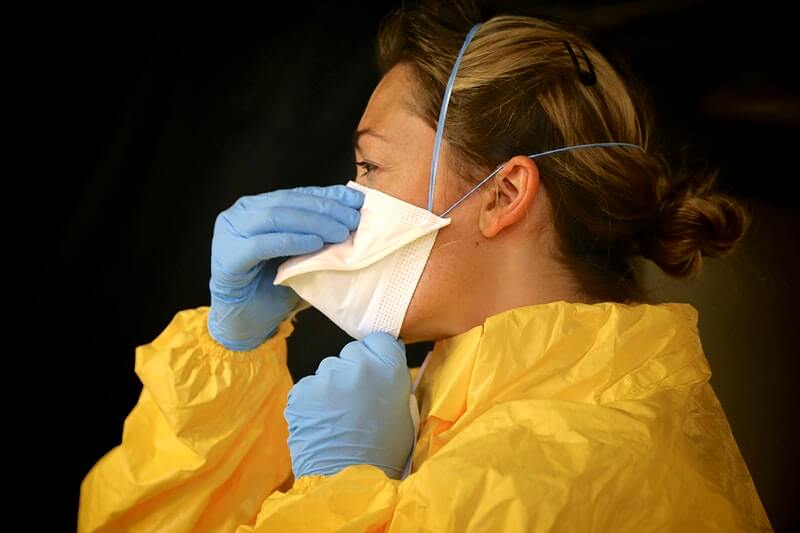Can Coronavirus Linger In the Air and Infect You Even If You’ve Had No Contact With Another Person?
 Shutterstock
Shutterstock Reading Time: 2 minutes
According to the US Centers for Disease Control and Prevention, coronavirus spreads from person to person when people are within about 6 feet of each other “through respiratory droplets produced when an infected person coughs or sneezes.” But the latest reports claim that it may even spread through breathing or talking.
Dr. Harvey Fineberg, chairman of the NAS’ Standing Committee on Emerging Infectious Diseases and 21st Century Health Threats, sent a letter on Wednesday evening in response to a query from Kelvin Droegemeier with the Office of Science and Technology Policy at the White House.
Fineberg also told CNN that research shows that aerosolized droplets produced by talking or possibly even by just breathing can also spread the virus.
“This letter responds to your question concerning the possibility that [coronavirus] could be spread by conversation, in addition, to sneeze/cough-induced droplets,” the letter mentions.
RELATED: NY NURSE SHARES DEVASTATING PHOTO OF PILING DEAD BODIES IN TRASH BAGS AMID CORONAVIRUS
“Currently, available research supports the possibility that [coronavirus] could be spread via bioaerosols generated directly by patients’ exhalation,” it continues.
Research by the University of Nebraska has also shown that genetic material from the virus was found in patients’ rooms more than 6 feet away from the patients, according to the letter.
Fineberg then goes on to explain that it is possible, aerosolized coronavirus droplets can hang in the air and those droplets that linger in the air can infect someone who walks by later.
How long coronavirus lingers in the air?
Now that’s a loaded question and it depends on several factors, including how much virus an infected individual puts out when breathing or talking, and also on the amount of circulation in the air, as per Fineberg, the former dean of the Harvard School of Public Health.
“If you generate an aerosol of the virus with no circulation in a room, it’s conceivable that if you walk through later, you could inhale the virus,” Fineberg said.
RELATED: “I FEEL LIKE WE ARE JUST BEING SENT TO THE SLAUGHTER” SCARED NY NURSES SHARE THEIR STORIES
“But if you’re outside, the breeze will likely disperse it.”
Fineberg’s letter also explains research at a hospital in China shows the virus can be suspended in the air when doctors and nurses remove protective gear, or when floors are cleaned, or when staff moves around.














